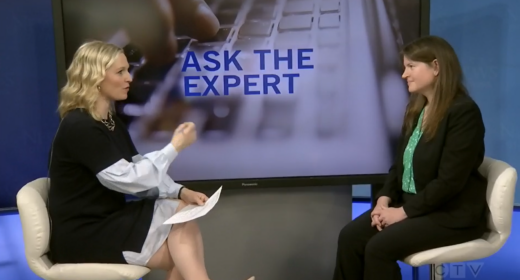On February 17, the Plaintiffs in the widely reported Ottawa “Freedom Convoy” class action obtained a Mareva injunction freezing assets. The order has been widely reported as being a ‘Canadian first’ in that it orders the freezing of cryptocurrency assets.
Unfortunately for the Plaintiffs, and as brashly stated by the Nunchuk Development team, ordering the freezing of cryptocurrency assets is an exercise in ramming a square peg through a round hole.
What is a Mareva Injunction?
An “injunction” is where the court compels a party to do – or refrain from doing – specific acts. The specific act implicated in a Mareva injunction is the freezing of assets. A Mareva injunction is often described as “drastic” or “extraordinary” and is used where there is a real risk that the assets will be transferred or disposed of and, therefore, cannot be targeted to satisfy a judgment or an order for the payment of money. The test to grant a Mareva injunction is notoriously high, and as one was granted here, I have no doubts that there were compelling reasons to do so.
The Order
The order itself lists Nunchuk under “Digital Asset (Cryptocurrency) Platforms”. The operative paragraph, paragraph 10, under the subheading “Intermediaries” orders Nunchuk as well as “custodians of any cryptocurrency wallets” (among other entities) to:
…forthwith freeze and otherwise prevent any removal, dissipation, alienation, transfer, assignment, encumbrance, transaction, or similar dealing with any of the assets identified in Schedule “A” to this Order.
Schedule “A” lists a series of Bitcoin wallet addresses.
What is a Cryptocurrency Wallet?
A Bitcoin wallet in its most basic form is a software program that stores two randomly generated strings of numbers or “cryptographic keys” which can route cryptocurrency (“crypto”) to and from a destination. One key is a public key and the other key is a private key. A public key is like your real-world mailing address. It is a string of text that is used to route mail to your house’s mailbox. You can share a public key with someone and they can send you cryptocurrency. This is analogous to sharing your mailing address with someone. When you receive crypto, the transaction will be recorded on a blockchain.
The private key is what the owner of a crypto destination or address uses to send crypto. Unlike the public key, the private key is not disclosed to the crypto network and is not recorded on the blockchain. The private key is what grants the owner access and ownership of a given cryptocurrency address. Think of a private key as the key to your mailbox. You can’t take your mail out of your mailbox without having the key.
If I tell you my mailing address, you can send mail to my mailbox. If I want to take that mail and forward it to someone else, I must first unlock my mailbox with my key.
So, again what is a crypto wallet? It is a program that stores two cryptographic keys. Some wallets are physical devices that run software which manages public and private keys (hardware wallets). Some wallets are software installed on a computer that manage the same two keys. As long as you can use software to generate the random cryptographic keys associated with a crypto address, you can simply type out the two cryptographic keys in Microsoft Word and save it as WALLET.docx and you have created a crypto wallet, although for security reasons, this is highly ill advised.
Nunchuk
Nunchuk describes itself as “self-custodial, collaborative-multisig Bitcoin wallet”. Without going into the weeds of what this means, the premise of a multi-sig wallet is essentially that it requires the verification of multiple parties to “sign” transactions using the keys, making it more unlikely that private keys could be hacked or obtained by nefarious means. Following our analogy, we can think of Nunchuk as the manufacturer of a secure, titanium mailbox to which a padlock can be attached.
The Problem with the Order
Asking the developers of a wallet to freeze the Defendants’ assets makes about as much logical sense as asking Gucci to freeze the contents of a Gucci handbag – there is simply no mechanism for Nunchuk to achieve this, and asking a wallet developer to freeze assets demonstrates a misapprehension of what a crypto wallet is and what a crypto wallet does.
In the Court’s decision on the injunction, the Court states that “[digital] wallets may be self-controlled, but more commonly are part of a service provided by a provider and accessed through an application or software in a similar manner to online banking.” Unfortunately, this is the very issue. Nunchuk is not providing a software in a manner at all like online banking. It is a self-custodial wallet; anyone is free to download the application and save it on their own hard drive. Linking crypto back to the mechanisms of traditional banking is always going to be problematic because it glosses over the stark technical differences and the raison d’être of cryptocurrency: decentralization. Even describing Nunchuk as an intermediary misses the point.
Suppose you buy a new-build house, and suppose that it comes equipped with a Nunchuk titanium lockable mailbox affixed in front of your front door. What if a court ordered the secure mailbox manufacturer to freeze the mailboxes so that no one could push mail through the slot, and no homeowner could use their key to open their mailbox, and ordered them to otherwise prevent any removal, dissipation, alienation, transfer, assignment, encumbrance, transaction, or similar dealing with the homeowner’s mail?
There would be no mechanism to do that. Nunchuk has no control over what is done with its software once it is downloaded, much like the manufacturer of a mailbox has no control of what is done with its mailboxes once they leave the store. The whole premise of a wallet is that the private keys are…private. Even if Nunchuk had a list of private keys (which would be scandalous and nonsensical) that would just mean that Nunchuk would have the ability to seize the Defendants’ assets, but they would still have no more ability to freeze the Defendants’ assets and prevent them from transacting cryptocurrency.
While sending a Mareva injunction to other players in the crypto space, such as cryptocurrency exchanges is feasible, directing the developer of a crypto wallet to freeze assets directs the wrong party, to do the wrong thing, while speaking the wrong language.




